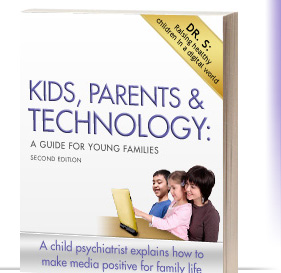IS IT PUNISHMENT OR CHILD ABUSE?
Eitan D. Schwarz, M.D., D.L.F.A.P.A., F.A.A.C.A.P.
CLINICAL ASSISTANT PROFESSOR, FEINBERG SCHOOL OF MEDICINE
NORTHWESTERN UNIVERSITY
CHICAGO, IL
Copyright © 2002 Eitan D Schwarz. All rights reserved. This handout may be copied and distributed only for non-profit educational use.
PUNISHMENT OR ABUSE?
The purpose of discipline and punishment is to educate and to promote development.
To injure, to demean, or to humiliate is to abuse. Violence has no place in child rearing. Remember that you are a big and powerful adult while the child, no matter how difficult or frustrating, is small and dependent.
NEVER NEVER NEVER PUNISH OR DISCIPLINE A CHILD WHEN YOU ARE ANGRY or frustrated or impaired by fatigue, alcohol or drugs. You could too easily lose control, and when you do and direct naked aggression towards a child, you are abusing the child. This goes for both verbal and physical violence.
Punishment is never an occasion to vent meanness, aggression or frustration. “I am only doing this for your own good… One day you will thank me… You will know I did the right thing when you have children yourself…” are thinly veiled excuses that have no merit.
Attacks against children are profound betrayals of trust and love that wound deeply long after any physical injuries heal. Brothers and sisters watching such aggression can be similarly damaged.
WHAT CARE GIVERS AND OTHERS SHOULD DO
It is normal to become impatient and frustrated with children, and even angry and at your wit’s end. But FEELING angry does not mean that you should ACT angry.
It can be quite a challenge to figure out appropriate punishment or discipline, but you should strive to be respectful, firm, fair, thoughtful, and to measure the response to the child’s ability to comprehend and learn.
If this is not possible, then you should avoid by any means injuring a child: Count to ten, “chill,” take deep breaths, walk out of the room, wash your face with cold water or take a shower, vacuum or do the laundry, shop, pay bills, do sit-ups…
The best way to solve a problem is with a clear mind. You should strive to THINK THINK THINK THINK clearly and plan ahead before undertaking to punish a child. Co-parents should plan together, back up each other, and remain consistent. These are the questions you must always ask and answer before disciplining or punishing:
- What will I accomplish by lashing out?
- Am I now in any shape to punish my child or am I too angry?
- Do I really want to hurt my child emotionally or physically and damage our love for each other?
- Can I do something to cool off?
- What is the best way to truly have the child learn what I want him to learn?
You should seek out another grownup or call a hot line to talk with and unload. A bystander, co-parent, or another family member should offer such help..All children have a right to safety. Bystanders witnessing abuse should intervene to protect the child and assist the care giver regain control. If a care giver repeatedly loses control or significantly attacks a child physically or verbally, he/she should be offered professional assistance. In the mean time, the case should be reported to appropriate authorities or police because the child deserves and has a right to protection.
SPANKING
Spanking has been a commonly practiced means of punishing and disciplining children in many cultures: “Spare the rod, spoil the child.” However, countless children have been raised well without a single spanking. Moreover, we also do not condone spanking because the line between spanking and abuse can be too thin for many care givers.
Care givers have the awesome responsibility of raising the next generation of civilized people. Child development experts know that children turn out best when encouraged with verbal rewards for desired behaviors and rewarded for the absence of undesirable behaviors.
Care givers should strive to gradually shape children’s behavior in a context of nurturing, love, and respect for the child. Children can often be invited to join in a discussion of what would be a fair consequence to empower them and teach them self discipline and fairness.
BE ALERT
Abusive care givers are often under great stress themselves and need support. They may have serious emotional problems. They may lack skills or material or emotional resources necessary for raising children and may need assistance from a family service agency, bystanders, friends, or their own family members.
Children who do not respond to reasonable rewards or punishments may have learning problems, Attention Deficit Disorder, or another difficulty. Such children are more likely to be abused because they can lead even the most patient care givers to feel frustrated, guilty, ineffective, and unrewarded. Care givers or concerned family members may obtain support and children help from a professional knowledgeable about the psychological needs of children and parents.
APOLOGY AND FORGIVENESS
As hard as they try, most care givers “lose it” occasionally. A care giver who rarely mistreats a child can repair damage and promote growth with a full, open, and dignified apology. Remember, the reality is that this is not a level playing field — you are strong and the child is relatively weak and dependent.
- Recognize and acknowledge to the child his injury (“I know I hurt you. It wasn’t right. You don’t deserve to be hurt this way,” not “But you hurt me too.”)
- Take genuine and direct responsibility (“I was definitely wrong!” and not “I didn’t know what I was doing,” or “You made me do it.”)
- Validate the child’s legitimate right to a reaction (“You are right to blame me and be angry with me,” not “Please don’t be angry with me.”)
- Apologize sincerely and mean it (“I am really sorry!” not “You should be sorry too because it was partially your fault.”)
- Ask for forgiveness (“Please forgive me,” not “Let’s forgive each other.”)
- Resolve not to repeat this mistake and make a promise you can keep (“I will really try not to do this again,” not “I’ll never never do it again.”)
- Respect the child’s need to think and decide (“Take your time to think about whether you can decide to forgive me. It is important to me that you really mean it if you do.”)
- Empower and give the child a real choice. Do not pressure or bribe a child or expect automatic forgiveness (“If you don’t want to forgive me, I will understand.”)
- Accept forgiveness with gratitude (“Thank you. It really means a lot to me that you forgave me.”)
- Accept the child’s hesitation or refusal to forgive you graciously and without retribution (“I will ask you again later because you forgiveness is so important to me.”)
- Refrain from your damaging behavior in the future.
The child can then feel respected, learn that injury can be repaired and that his own forgiveness can be powerful and good; that occasional anger can be part of good relationships; that people can be trusted, even when not perfect; and that it is good to take responsibility. These are valuable lessons about how love works in human relationships.



